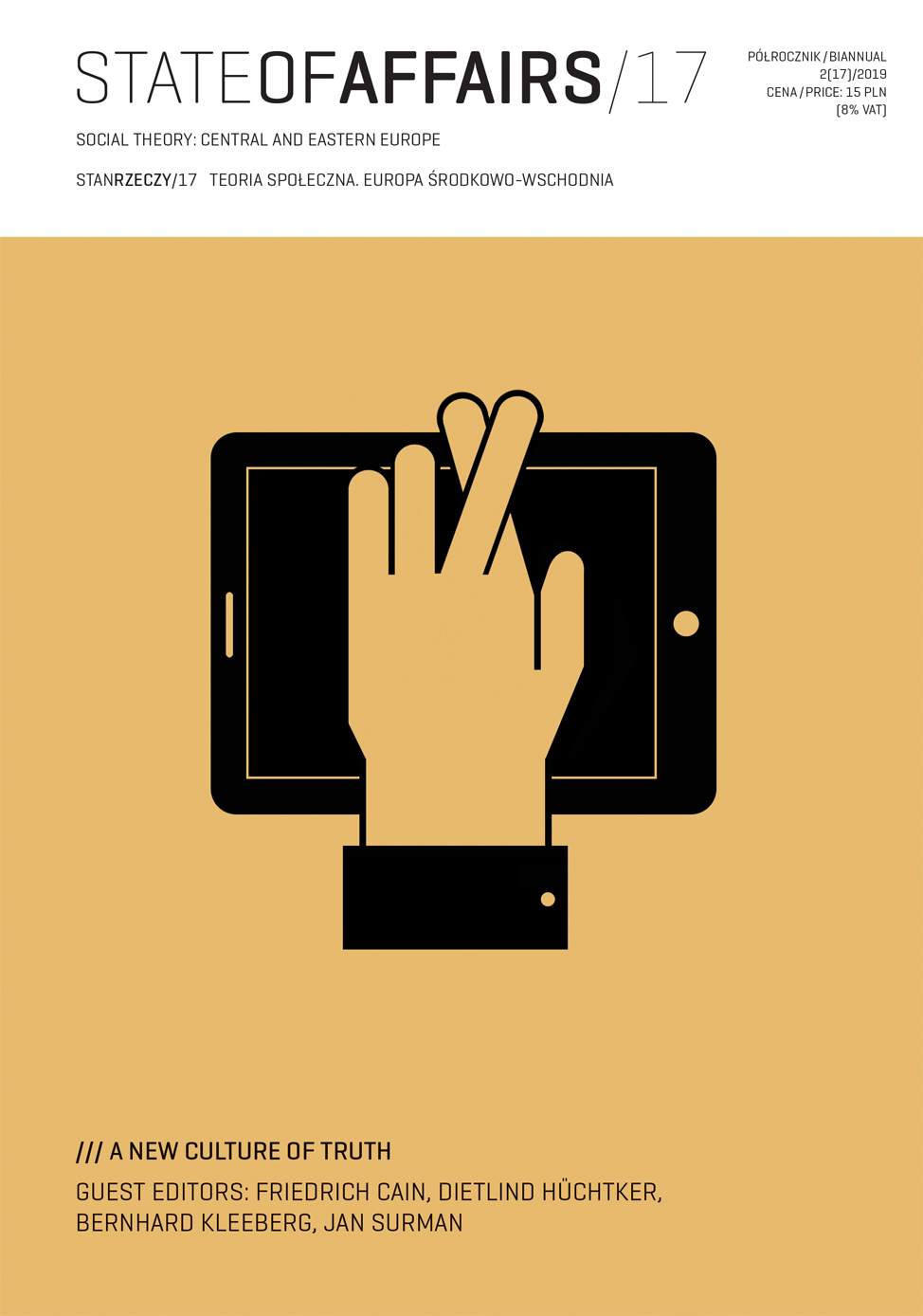
We kindly inform you that, as long as the subject affiliation of our 300.000+ articles is in progress, you might get unsufficient or no results on your third level or second level search. In this case, please broaden your search criteria.


This paper considers how a truth discourse about violence against women was produced with the #JaTeż posts published on Facebook between 16 and 20 October 2017, during the first phase of Polish #MeToo. It applies a post-Foucauldian perspective of dispositive analysis to outline how the circulation of #MeToo (#JaTeż) in social media affected the patriarchal dispositive of gender, which had to give way to women speaking truth. The replication of posts and accumulation of affects in the #MeToo (#JaTeż) network allowed the normalisation of violence against women in public discourse to be countered. Michel Foucault’s work on parrhesiastic and confessional modes of truth-telling is employed to analyse courage and solidarity in #MeToo (#JaTeż), as well as to connect individual engagement in the action with the collective claim for a normative shift in favour of women’s rights.
More...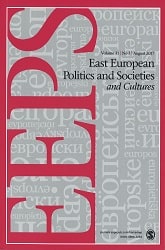
In this issue of the Bulletin we provide statistics for the September 19, 1993, elections in Poland, as well as selected findings from post-election polls of the electorate. We also include a brief commentary and public opinion data about the shaping of voter preferences and the likely outcome of the forthcoming elections in Hungary. The September elections in Poland resulted in a significant shift to the. left. An electoral coalition led by a post-Communist successor party to the PUWP, including among its leaders some of the most prominent personalities of the pre-1989 Jaruzelski regime, received a plurality of electoral votes. Its popular support was twice as large as that of the most attractive of the parties with roots in Solidarity-the Democratic Union. Second place was awarded by the electorate to yet another successor party of the Ancien Regime, the Peasant party. This result meant the return to power of an alliance of post-Communist parties. [...]
More...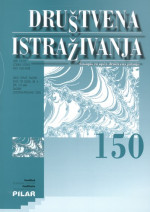
The purpose of the paper is to fulfil the findings on populism in the context of Croatian society, with an emphasis on the acceptance of populism among young people as bearers of the future social development. Media, as a form of public opinion, are among the most important sources of relevant insights for the study of the rise of populism. The paper pays special attention to the relationship between the use of daily news portals, and the acceptance of populism. The study was conducted on a two-stage non-probabilistic sample of 1189 students of the University of Zagreb, in order to determine the relationships between students' preferences in general, left-wing and right-wing populism, their habits of using daily news portals, and some individual characteristics. The results show that there is a low but significant correlation between the use of most portals, and the preference for general, left-wing and right-wing populism among students. The correlation between the education of parents with student preferences of left-wing and right-wing populism was found, as well as differences in these preferences with respect to some sociodemographic characteristics, level of study, study orientation, political orientation, religiosity and trust in institutions.
More...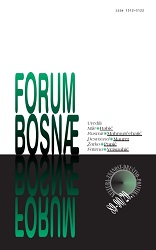
Temeljna oznaka “duhovne situacije vremena” u kojem živimo je strah. Najprije strah od neizvjesnosti, nesigurnosti, neslobode, nepoznatog, smrti i, konačno, strah od Drugog. Tokom proteklih mjeseci, odnosno za vrijeme pandemije Covid-19, utemeljen je pojam “socijalna distanca”, koji se u svojoj neopozivoj nužnosti i praksi pokazuje kao uvjet opstanka. Zašto? Drugi nam može prenijeti smrt. On može biti izvor naše smrti. Zapravo, taj Drugi je samo oličenje naše smrti. Konačno, u žurnom pokušaju da već na početku imenujemo stanje u koje smo ušli i u kojem se navikavamo živjeti, čini se da bi nam Sardarova oznaka u samo dva poteza ponudila najjasniju sliku. Dobro došli u postnormalna društva. [...]
More...
Dok ispisujem ove pandemijske otiske, crneći postupno belinu ekrana, nisam siguran da li ću ih moći na kraju sa samopouzdanjem potpisati a još manje da li ćete u trenutku čitanja biti u mogućnosti da zabeleženo prepoznate. Sve je poljuljano! Nekadašnje izvesnosti su se isfronclale u puke zablude. Nepouzdanost je sveobuhvatna! [...]
More...
Nakon globalnog širenja oboljenja od virusa korona, koje je rezultiralo proglašenjem stanja pandemije od strane Svjetske zdravstvene organizacije, države i pojedine administrativne jedinice unutar država različito su reagovale na navedenu zdravstvenu prijetnju. Na globalnoj razini uvedeni su razni oblici restrikcija kretanja, propisane su brojne mjere u vezi sa zaštitom zdravlja građana, ekonomske te druge mjere prevencije širenja pandemije. Ovisno o unutrašnjem uređenju i stopi širenja pandemije, mjere su bile predmetom izmjena, dopuna ili potpunog dokidanja, a takva praksa se nastavlja i dalje. [...]
More...
Današnja Evropa, kao i cijeli svijet, nalazi se pred sasvim novim iskušenjem. Nije upitna potreba da se neočekivana pojava virusa, o kojem se nije mnogo znalo, mora “analizirati”. Okolnosti i posljedice u kojima se našao sjever Italije i tajnovitosti kineskih vlasti o pitanju broja zaraženih i umrlih nisu dopustile da se vlasti liberalno-demokratskih država prepuste sudbini. Dostupne činjenice su uplašile mnoge ozbiljne evropske političare koji su u neznanju pribjegli radikalnim rješenjima. Koliko su sve te mjere bile neophodne, to je već danas upitno. Ali bolje spriječiti nego liječiti, pogotovo kada ta bolest nije poznata. [...]
More...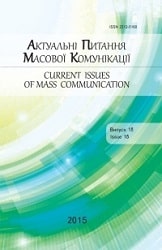
The Academy of Ukrainian Press since 2002, with the participation of scientists of the Institute of Sociology of the NAS of Ukraine, conducts research of prime time news (19:00-23:00) of the leading Ukrainian TV channels. Monitoring is carried out by content analysis, that is, a quantitative method of document study, characterized by rigor of the procedure and reliability of conclusions, and consists in quantitative processing of the text with subsequent interpretation of the results. The article looks at the main trends that were identified in the March 2019 Prime Time News Analysis: •Political news in Ukraine focuses on March programs. Only 1+1 is traditionally dominated by all other news about Ukraine. The intensity of attention to political news varies markedly. The main source of information is media‟s own correspondents. •Attention to the presidential election increased from 18% to 22% compared to February 2019 news. •Channels are heterogeneous in their focus on the 2019 election theme. Every third announcement on Ukraine on Inter, Ukraine, ICTV channels is electionrelated; each eleven on the 1st and twelve on the 5th. •In the news, 17 presidential candidates were mentioned out of 44 registered by the CEC (39%, in February 34%). The most frequently reported was the campaign of Yulia Tymoshenko, O. Vilkul, P. Poroshenko, and O. Lyashko. •The highest attention in the news to the candidate politicians P.Poroshenko, Y.Tymoshenko, O.Lyashko, O.Vilkul, Y.Boyko. •Only in a positive and neutral context was A. Gritsenko mentioned, and in the least ironic and negative about Y. Boyko and Y. Tymoshenko. The most frequently mentioned in the ironic and negative are Yuri Tymoshenko and E. Muraev. •P. Poroshenko, O. Vilkul, O. Lyashko, Y. Tymoshenko, and Y. Boyko had more time in the news. For two months in a row V. Zelensky has been in sync only in 1+1 news. Channels are markedly segmented by their political preferences, adhering strictly to their own election campaign strategies.
More...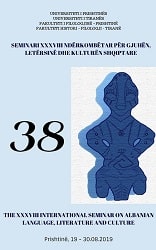
The aim of this paper is to shed light to the employment of some conceptual metaphors and metaphorical scenarios in the Albanian political discourse. The theoretical framework of the paper is focused on concepts related to the political discourse, ideology and the analysis of language devices that serve for the rhetorical strategy. The empirical data for this research is collected from the minutes of the plenary sessions of the Albanian Parliament and from various speeches of important political leaders. The conceptual metaphors in this discursive variety are either used in the same way that other Albanian speakers use them or connotatively especially for the sake of polemics, irony and satire. Through a Critical discourse analysis, it is noticed that there are some very generic conceptual metaphors in the Albanian Political Discourse, such as POWER IS FOOD, GOVERNING IS A VEHICLE, and MEDIA IS A CALDRON etc. The present paper draws the conclusion that the Albanian politics suffers the populist syndrome and thus conceptual metaphors could be interpreted as a communicative trick employed not only to address the political adversary but also to interpose textual features that are very common to the daily informal speech of the people.
More...
There is no more qualitative distinction that places us as human beings in a different order from other beings than language. In her companion role, the word has historically been identified, and people have also been made together. It is centeredas qualities and in the sacred books. In short, its power unites consciousness while joining the actions of people. Politicians have recognized this force and have turned the word into the common practice of persuasion. From memorization of scripture to literacy, from dedicated elite reading to the massive digestion of everyone, from the logic of reasonless obedience to reasonable conviction, the word remains the main instrument of politics. It is always interested in the support of the community of people and the fate and success of any politician depends on the extent of the mass of people who join and follow it. In this context, the use of the word and perseverance to use it is by no means new. At the time of the digital revolution, it changes the scope of application but not the purpose for which it is used in politics. Social networks are the new, old "religion" ritual, politics that, with the skill of the simplicity that digital development offers, turns the word into political message mode. This issue of using the word as an instrument of obedience through the use of social networks and the virtual world will address this work as part of a broader study cycle that seeks to capture the relationship between culture and the internet and vice versa. Using the method of direct observation of the use of networks by politicians, but also the statistical and comparative methods I will try to bring the role that these networks play in Albanian politics at the time of our existence. The sayings of networks are often beyond the realities that arise as beliefs that will inspire change. For this I will use qualitative analyzes but also inductive examples to understand logic and word ratio with power.
More...
The dominance of excessive eroticism, which is being used as a culture over our mentality and is being given high priority to social networks, is described in this paper. Another phenomenon is the approach of adolescents to this phenomenon who through social networks encounter “cultural” portals, different newspapers, which are the first news of provocative images. What results does this education bring to us in Kosovo? Some regional and international comparisons have been made with portals, media that “bombard” the site with erotic images. The paper also discusses why this phenomenon is used, its impact on massive scale? To what extent has our consciousness provoked and this phenomenon is growing massively, while it is known that actors, singers and, more generally, more artists are exposing body to values than values. In the paper, it is also about how to get out of this phenomenon.
More...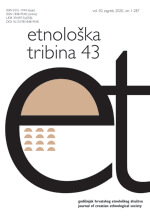
This paper explores the phenomenon of areas with a large number of abandoned and vacant properties that have a significant impact on the life of communities in economic, environmental and socio-cultural terms. Although the phenomenon has been present in some parts of Europe and the USA for a number of decades, it has become more prevalent in recent decades. The aim of this paper is to explore whether the phenomenon of abandonment is present in contemporary Croatia, as a complex network of negative demographic, social, economic and environmental causes and impacts. Furthermore, the aim is to create a theoretical framework for research into areas with a large number of abandoned or vacant properties in Croatia. Quantitative analyses of key indicators, content analysis of published media and official documents, and ethnographic field research show that abandoned areas are certainly present in Croatia, as are local initiatives to mitigate the negative situation. The recognition of this phenomenon at national, regional and local level needs to be accompanied by the development of an interdisciplinary research methodology, policies and regeneration strategies. Some guidelines on these matters are provided at the end of the paper.
More...
The article embeds the three most popular fairy-tale films by Vaclav Vořlíček (Girl on a Broomstick, 1971; Three Wishes for Cinderella, 1973; How to Drown Dr. Mraček or the End of Water Spirits in Bohemia, 1975) in the socialist campaigns orchestrated by the Czechoslovak government in the late 1960s and early 1970s, whose goal was to introduce women to new practices directly relating to reproductive behavior. I explore this cohort of “crazy” comedies stemming from the story of domestication of women as a historical continuity in the development of the comic female Bildungsroman, one of the mainstream genres interrogating nation-building and popular culture in the Czech lands from the second third of the nineteenth century until today. The core frame of the Czech female Bildungsroman, namely the binary opposition of “us/them” related to the Czech-German relationship, ascribing to women the risk of Otherness, and the call for their Czechinization through intercourse with Czech men, are deconstructed through infiltration by eugenic motives disseminated in the public discourse concerning the nation’s health between the 1960s and 1970s.
More...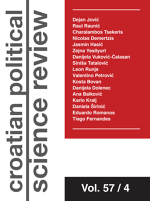
Reflecting on the May 2019 European Parliament elections, the EU democratic institutions are in need of efficiently responding to the discrepancies between public agendas and policy-making (as shown in the Macedonia naming dispute), and the threatening dynamics of authoritarian populism, as well as to unpredictable reactions from diverse groups and citizens, especially from the neglected, excluded and marginal ones. These citizens cannot handle complexity and react by voting for protest candidates/movements and supporting radical, yet oversimplified and inadequate, solutions to complex problems. Given the potentiality of crisis cascades and that an over-standardized “one size fits all” approach does not work anymore, the EU policy-making experts should arguably turn their analytic attention to existing drivers of political destabilisation by adopting new knowledge bases and sources. This pertains to a fresh theoretical understanding of nonlinear sociopolitical phenomena (from populist reactions of any kind to social media behaviours), that is, a deeper, complexity-friendly approach drawn from new scientific advancements and coupled with innovative policy designs, aimed to rebalance the system and to defend the European project against further failures.
More...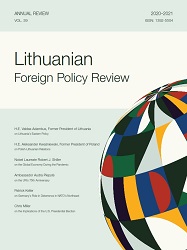
Overview of the international conference: Dealing with the traumas of undigested past; Palace of the Grand Dukes of Lithuania, Vilnius, Lithuania, March 5-6 2020
More...
When Volodymyr Zelenskyy won the 2019 presidential election in Ukraine, Ukrainian philosopher Vakhtang Kebuladze called his phenomenon a “non-Maidan”. I repeated this expression in my interview for New Eastern Europe published in May this year. Kebuladze meant that Zelenskyy’s election undermined the 2013 – 2014 confrontation between the pro-European “Maidan” and the pro-Russian “anti-Maidan”, and his political project – Servant of the People – intuitively or consciously sought a different approach: more inclusive, but also more vague, a comprehensive platform attracting voters with different origins and values. At that time, I called the Zelenskyy phenomenon “populism 2.0”. During the election campaign, Zelenskyy was not proposing ideas, values or even slogans.
More...
The first 25 years of independent Ukraine is already behind us. In attempts to help understand the changes that have occurred over this time, there are countless political, economic and social analyses, commentaries, recommendations and prognoses. The vast majority of them have referred to this period as one of wasted opportunities. In our research, which we have been carrying out in this regards, we focus on the role the youth has played in the democratic transformation and its future potential. By focusing on the younger generation of Ukrainians we want to show that we are not solely interested in political and economic development, but primarily the country’s human and social capital. We have opted for this approach to better understand how, in the last number of years, young Ukrainians were shaped by experiencing life in a new Ukraine. Have they adopted a stronger sense of national identity, have they become more European? Are they closer to the European Union or Russia? These are the questions we sought to answer.
More...
In December 1970, 14 years had passed since Wiesław Gomułka became the first secretary of the communist party in the People’s Republic of Poland. At that time, both the thaw of 1956, which allowed Gomułka to return to power, and hope for reforms that he promised (the so-called Polish way to socialism) were already a fading memory. It was not the right moment for a nostalgic journey to the past. And with Christmas just around the corner, everyone was busy stockpiling goods that were hard to come by.
More...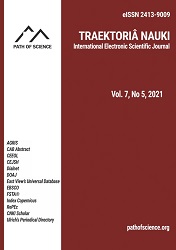
As the world battles the novel Coronavirus pandemic ravaging lives and destroying economies, many nations have entrusted the detection, handling and management of confirmed coronavirus cases to their leading public health institutions. For Nigeria, the Nigeria Centre for Disease Control (NCDC), charged with the said responsibility, faces a worrisome myriad of backlash from citizens' who regard their daily update of confirmed cases as misleading. In this survey, the researchers purposively study this category of sceptic individuals to understand their level of awareness of the virus and their perceptions about the government agency, to determine the factors responsible for the lack of confidence in the reportage, and how their confidence level may be boosted. The study adopted a mixed-method to recruit some 425 respondents that fit the profile of 'those who lack confidence in the NCDC daily reports'. Findings revealed that even the aware, educated, and high-income Nigerians equally constitute those with misperceptions and scepticism about the NCDC. Key reasons for the distrust include inconsistent reporting, secrecy about patients' database, and perceived corruption tendencies. Recommendations based on the findings call for increased openness and access to compelling information about activities to curtail the infection, especially transparency in treatment and budget spending.
More...